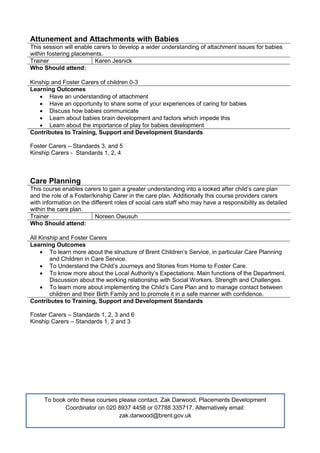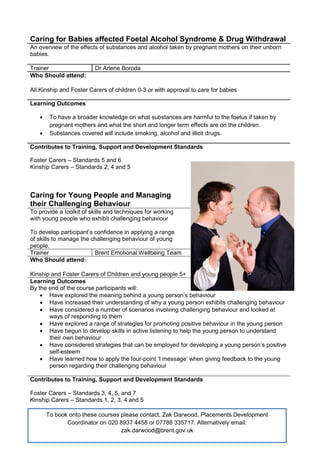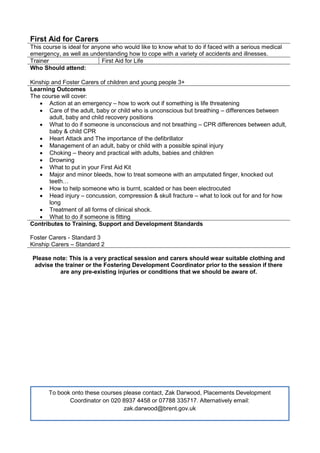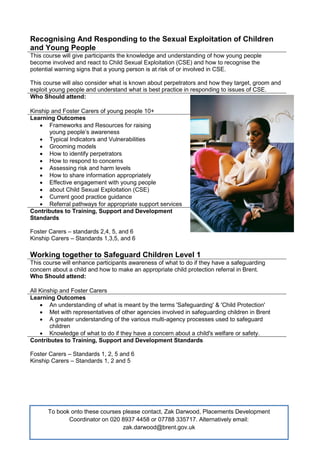This document provides information about the Carers Learning and Development Programme offered by Brent Looked After Children and Permanency Service from April 2016 to March 2017. It outlines the various mandatory and optional training courses available to foster carers, kinship carers, and short break carers. Carers are expected to attend a certain number of training sessions per year based on their level of experience. The document also provides guidelines on applying for training sessions, attendance requirements, and codes of conduct for training.
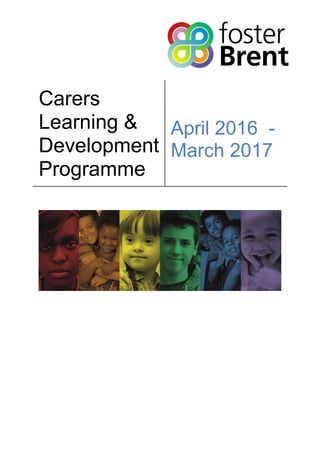







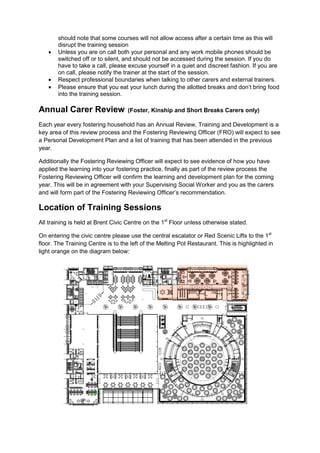
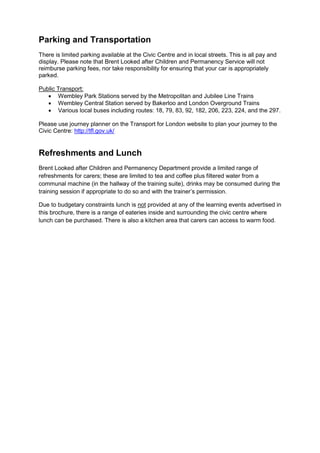






![Introduction to Attachment
This half day session will enable carers to develop a wider understanding of attachment issues for
children who are in care.
Trainer Brent Emotional Wellbeing Team
Who Should attend:
All Kinship and Foster Carers
Learning Outcomes
• Have an understanding of attachment
• Have an opportunity to share some of your experiences of caring for children
Discuss the importance of recognising a looked after child’s attachment to their birth
families and previous lifestyles
Contributes to Training, Support and Development Standards
Foster Carers – Standards 3, and 5
Kinship Carers - Standards 1, 2, 4
Attending Court, Roles and Boundaries
This course will give carers an awareness of their roles in relation to attending court with children
and young people in their care.
Trainer Noreen Owusuh
Who Should attend:
Kinship and Foster Carers of young people 12+
Learning Outcomes
Gain an understanding of the role of a carer when it comes to attending course with a
looked after child or young person
To look at the boundaries of the carers role within the court setting
To learn more about the New Public Law Outline and children’s journeys through the
Public Law Outline [Pre Court, Court Care Proceedings and Permanency Planning
“Outcomes for Children”]
Contributes to Training, Support and Development Standards
Foster Carers – Standards 1, 3, and 6
Kinship Carers – Standards 2, 3, 4 and 5
To book onto these courses please contact, Zak Darwood, Placements Development
Coordinator on 020 8937 4458 or 07788 335717. Alternatively email:
zak.darwood@brent.gov.uk](https://image.slidesharecdn.com/4bb07fdb-d38e-426f-9d76-bf457d6352b1-160422184411/85/Development-Programme-20162017-Fostering-17-320.jpg)
